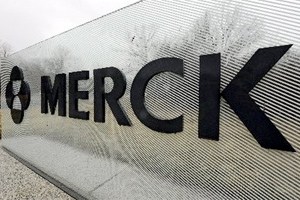
Merck & Co moved closer to a US launch for its anti-platelet drug vorapaxar yesterday after an FDA advisory committee voted in favour of approval.
The 10 to 1 positive vote marks a major turnaround in vorapaxar’s fortunes, given that two years ago its future was in doubt after results of the TRA-2P TIMI 50 study raised questions about its safety, specifically an increased risk of intracranial bleeding in patients with a history of stroke. This was subsequently confirmed in a second study called TRACER.
The FDA panel took these concerns into account and concluded that vorapaxar’s benefits in the reduction of vascular events in patients with a history of myocardial infarction (MI) but no history of stroke or transient ischaemic attack (TIA) – so-called ‘mini-strokes’ – outweigh its risks. Merck is seeking approval with an indication that explicitly excludes patients with a history of stroke.
Vorapaxar – which Merck plans to sell under the brand name Zontivity – is an orally-active protease-activated receptor 1 (PAR-1) inhibitor that targets thrombin-induced platelet activation.
Originally developed by Schering-Plough – which Merck acquired in 2009 – the drug had been tipped as a mega-blockbuster ahead of the TRACER and TRA-2P results, with S-P’s former chief executive Fred Hassan predicting potential peak sales of up to $5bn.
If the FDA follows the panel’s advice – which it generally does – Zontivity will compete in the market with other anti-platelet agents such as Sanofi/Bristol-Myers Squibb’s Plavix (clopidogrel) and generic equivalents, as well as newer drugs such as Lilly’s Effient (prasugrel) and AstraZeneca’s Brilinta (ticagrelor).
Given low-cost competition from generic clopidogrel and the restrictions on its use analysts have suggested sales will be fairly modest, with some suggesting they could be as low as $100m a year although others are slightly more optimistic with estimates in the $200m-$400m range.
Merck’s head of cardiovascular diseases Daniel Bloomfield said the vote was an “important milestone” for vorapaxar, and the company is looking forward to working with the FDA as it completes its review.
“There are approximately 7.6 million Americans who have survived a heart attack,” he pointed out, adding: “Each year, about 190,000 of them have a recurrent heart attack, so there remains a need for additional treatment options.”




